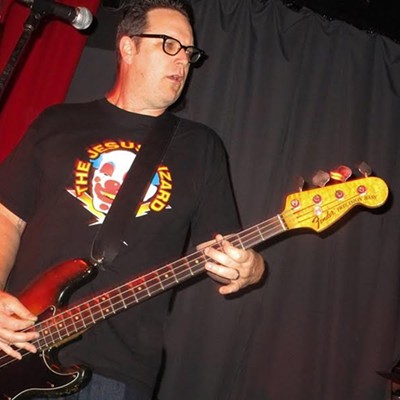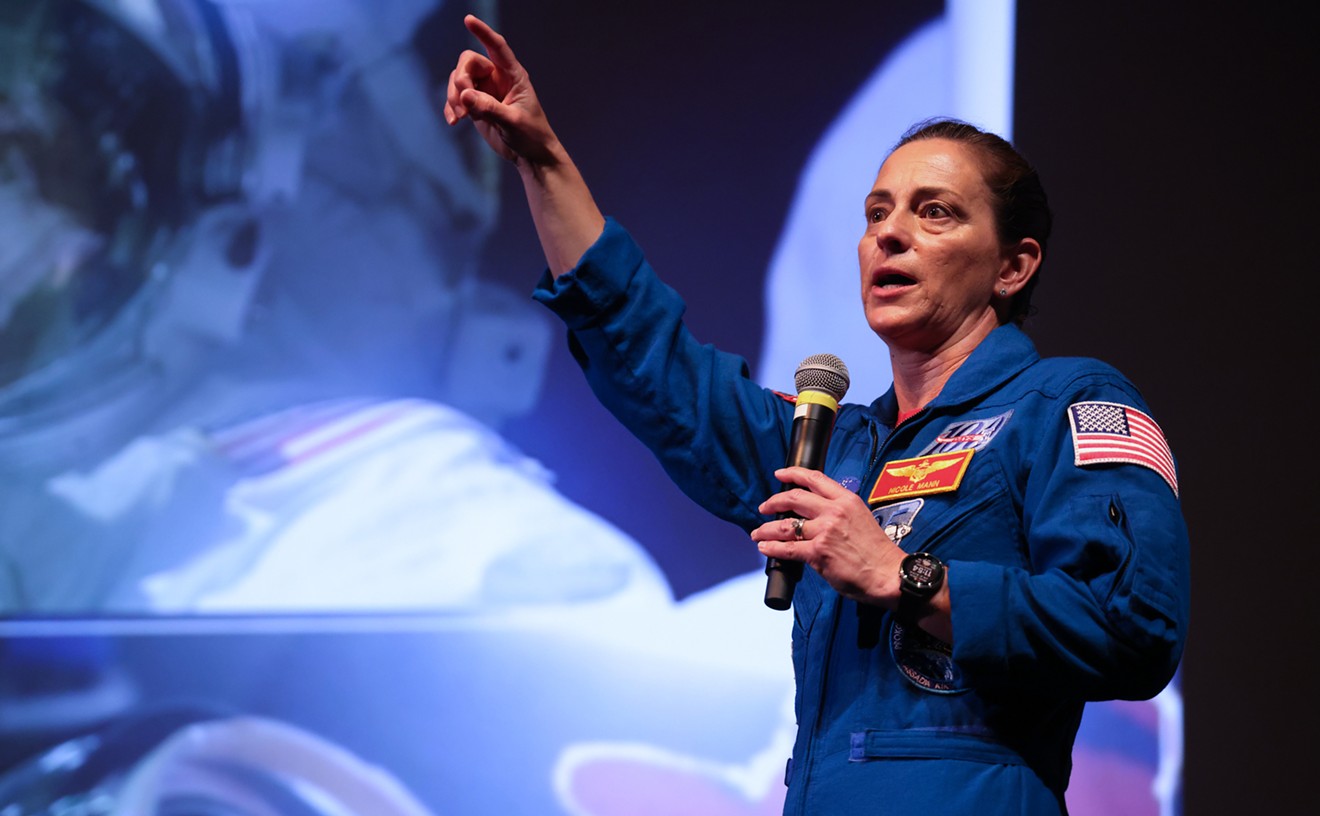This is a celebration of the 40th anniversary of Martin Scorsese’s 1976 masterpiece, Taxi Driver, even though it might sound coarse to use the world "celebration" when talking about such a bleak film. Taxi Driver is bleak, isn’t it? The movie sort of oozes at the seams, like a freshly stitched wound that may or may not be healing, and the ooze could be any number of bodily fluids.
It may seem strange to think of this film as only 40 years old. It has a timeless quality to it that belies its actual age, because it just seems like it has always been there (and if you were born after February 1976, it has always been there). Taxi Driver is certainly a well-heralded piece of American film history, and whether you are discussing the technical aspects, such as Scorsese’s direction, Paul Schrader’s unforgettable screenplay, or Michael Chapman’s stellar cinematography, or the dramatic aspects like DeNiro’s Academy Award-nominated performance or the amazing supporting cast, almost everyone who has seen the film has a strong opinion about it.
The key question, though, is why does this film affect people so strongly, even 40 years later?
Not an easy answer. If you have grown up with this film, each viewing probably has resonated with you differently. For a young viewer, the pace of Taxi Driver is probably much too slow to tolerate, let alone Jodie Foster's spot-on portrayal of the preteen prostitute, Iris. Those under 15 or 16, more than anything, probably want to get right to the guns and right to the shooting as they may go into the film expecting the type of action the film’s reputation implies. Scorsese’s direction, though, was masterful in its restraint and slow unveiling of the main character's increasing alienation and eventual turn to violence as he attempts to protect Iris from the life she has seemingly wandered into as a young runaway.
For older viewers, the film can hit closer to home. Travis Bickle is a man many people, especially today, can understand. He is right there, right in the middle of all the action, yet incapable of truly connecting with anyone or anything. DeNiro masterfully demonstrated Bickle’s descent into frustration and violence. Some might call it madness, but it’s not madness, really, but a hyper-paranoia mixed with complete disdain for the hellish world he sees all around him. Although, at no point in the film is he unable completely ignore beauty when he sees it. There is good in Travis Bickle, and it resonates with the viewer, even as we watch him struggle more and more mightily with his alienation.
There is a reason the film was rated R, even though by today’s standards it is fairly tame. Sure, there was violence and profanity and brief nudity, but more importantly, it is gritty and dark and it is almost as if the term “adult themes” was created for this film entirely. Scorsese, in some ways, had an additional lead “actor” to use at his discretion to underline the core ugliness of the film with the wonderful cinematography of Michael Chapman bringing the sinister underbelly of mid-1970s New York City to life.
As Bickle’s cab moves through the city and DeNiro’s voice-over describes what he is seeing and feeling, there really isn’t a better representation of this era of New York City in film. Scorsese and Chapman created a very powerful argument for the need to revitalize New York City from where it had gotten to in those maligned days. While it is not the only film to ever show the grittier side of Manhattan and its surrounding boroughs, it is the ultimate statement in 1970s film illuminating the need to brighten up the Big Apple, and a feeling of impending doom meeting the collapse of an empire permeates the film.
Justin Levine, former film critic of the Beverly Hills Weekly, as well as one of the hosts of TalkRadioOne.com’s Film Fustians, is a huge fan of Taxi Driver.
“Biggest unsung hero of Taxi Driver in my opinion has to be Michael Chapman. When Travis Bickle confesses to us that he has to clean the cum and blood off the seat of his cab, we don't need to see it. We can sense it. Just like we can sense the grime in the porno theaters or the sleazy motel hallways without ever having to linger on the surroundings. That's all Chapman,” Levine says. “He and Owen Roizman (The French Connection) were more responsible than any others for crafting a ‘look’ for New York that got seared into the cultural consciousness in the '70s, and has managed to remain in people's minds ever since, despite the many changes that the city has gone through since then.”
If Taxi Driver were released today, or even pitched to a major movie studio, it would most certainly be a different film. For one thing, New York City is not the same place it was 40 years ago. Perhaps Detroit would be a better representation of the world Travis Bickle might inhabit, but it’s somewhat frightening to consider what the script might become if it fell into the wrong hands. There are elements, for example, of something much more common in today’s movie-going world and it is possible Taxi Driver might become more than just the name of a film. It could also become the name of a superhero, or at very least, super anti-hero.
Deadpool without the laughs, perhaps. It’s all there, isn’t it? Regular guy with some special skills related to weaponry. Somewhat ambiguous moral code, but a penchant for violently harming only the “bad guys.” The strong need to protect a damsel in distress for a bit of a romantic element. He’s the rain that will come to wash away the scum … he’s the Taxi Driver. Interestingly enough, Marvel Comics had a character who appeared just before Taxi Driver first hit screens in 1976 named the Punisher who had a few of the same qualities as Travis Bickle. Today’s Hollywood would undoubtedly turn Schrader’s story of alienation into a superhero origin piece.
With any luck, though, such a treatment of the film will never happen. Hopefully Hollywood never gets so desperate that a remake of this classic movie is necessary. Some movies should just be left alone to enjoy again and again, and Taxi Driver is such a film. And speaking of being left alone, even in a group of people, watching the film will almost certainly make viewers feel as if they are by themselves. This is one of the most powerful aspects of the movie.
“[Bickle is] a man surrounded by people who can't meaningfully connect with any of them. His job puts him in constant contact with new people, and yet that only furthers his alienation. That's the irony. The more people that surround him, the worse it gets. You could easily draw parallels with today's social media. It often just creates more noise and madness, rather than meaningful connections. Maybe that's why Taxi Driver still seems fresh and vital,” Levine says.
[
{
"name": "Air - MediumRectangle - Inline Content - Mobile Display Size",
"component": "18478561",
"insertPoint": "2",
"requiredCountToDisplay": "2"
},{
"name": "Editor Picks",
"component": "16759093",
"insertPoint": "4",
"requiredCountToDisplay": "1"
},{
"name": "Inline Links",
"component": "17980324",
"insertPoint": "8th",
"startingPoint": 8,
"requiredCountToDisplay": "7",
"maxInsertions": 25
},{
"name": "Air - MediumRectangle - Combo - Inline Content",
"component": "16759092",
"insertPoint": "8th",
"startingPoint": 8,
"requiredCountToDisplay": "7",
"maxInsertions": 25
},{
"name": "Inline Links",
"component": "17980324",
"insertPoint": "8th",
"startingPoint": 12,
"requiredCountToDisplay": "11",
"maxInsertions": 24
},{
"name": "Air - Leaderboard Tower - Combo - Inline Content",
"component": "16759094",
"insertPoint": "8th",
"startingPoint": 12,
"requiredCountToDisplay": "11",
"maxInsertions": 24
}
]











